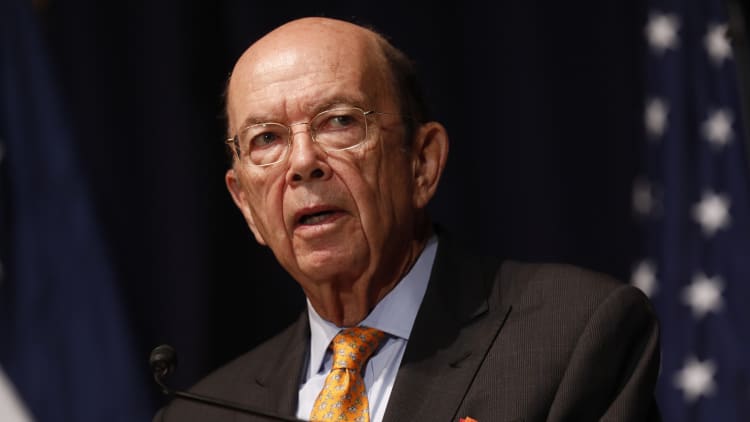
Commerce Secretary Wilbur Ross promised Friday he will take a proactive view on trade, with an emphasis on making sure the U.S. is getting good deals on the international stage.
In his first interview since being confirmed, the billionaire venture capitalist told CNBC that promoting employment and exports will be a primary focus.
"We'll be aggressive on trade because we know that deals that have been made historically have resulted in the great loss of manufacturing jobs, a great amount of closed manufacturing businesses," he said. "We don't want that to continue."
At the top of the list of priorities will be renegotiating the North American Free Trade Agreement with Mexico and Canada to terms more favorable to the U.S.
"The first on our agenda is NAFTA because we think it makes sense to solidify your own neighborhood first," he said.
Making sure other countries follow the terms of trade deals also will be a major task for him as the 79-year-old businessman gets further into the job.
"In the next week or so you're going to start to see a lot more out of us on enforcement," Ross said. "I think it's ridiculous to go to all the trouble to bring a trade case, win it and not enforce it against the other party. We will be a very strong enforcer of it."
He also promised a vigorous examination of regulations and in fact said business surveys also have begun to find how the administration can roll back job-killing rules.
"Many of these were put in by executive orders and agency rules and those wouldn't require acts of Congress" to repeal, he said. "So we are up to our eyeballs to try to make sure we identify all of the problems."
Border tax could fill budget hole
Ross defended the administration's exploration of a border adjustment tax that would give breaks to exports and penalize imports. Critics have said the move would cost U.S. jobs and penalize exporters while driving up the price tag of consumer goods.
Ross did not give a wholehearted endorsement to the plan but said the revenue it would generate is needed. He also pointed out that almost all of the U.S. trading partners currently have some form of a border tax.
"We need to do something to balance the budget," he said, while conceding he is "skeptical" of some of the arguments put forth by advocates of the tax who say that currency appreciation would offset the cost increases that would come with the levy.
"I'm a little skeptical about the theory that there's a totally free lunch and that the markets will absorb everything, but we do need something to fill that hole," he said.
The U.S. is currently running a budget deficit of $559 billion, with the national debt approaching $20 trillion. Reducing both burdens has been outlined as a priority by President Donald Trump, though his plans to cut taxes are likely to add at least in the short term.


